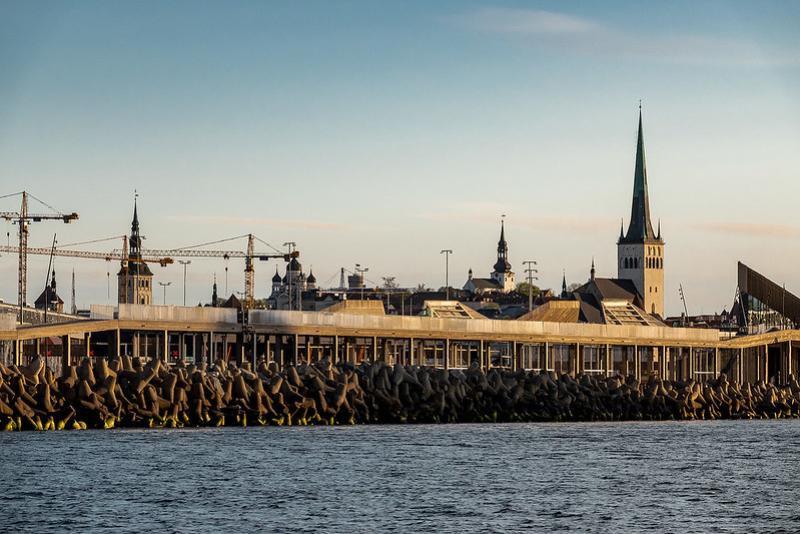The City of Tallinn has submitted its application to become a Zero Waste Candidate City under the Mission Zero Academy (MiZA) certification scheme, makingi it the first Estonian city to join the programme.
The Zero Waste Cities programme is an initiative of Zero Waste Europe aimed at helping cities transition to zero waste systems. Through certification, cities gain a strong framework for turning ambition into concrete action. The process will help Tallinn refine its strategy, better engage residents, and accelerate the shift towards waste prevention practices and material reuse and recycling.
According to the Mayor of Tallinn, Jevgeni Ossinovski, cities can spearhead change where national governments are too slow to act. “We want to make sure natural resources and our living environment is treated with the same respect as we treat our co-citizens. The city of Tallinn wants to be smart and innovative just like its people: invest not waste, protect not pollute. That is what becoming a Zero Waste City means.”
Deputy Mayor of Tallinn Margot Roose stated: “The Zero Waste movement has demonstrated that cities can effectively reduce waste generation. In Tallinn, we are actively developing infrastructure to enable a circular economy and make it easier for our residents to make environmentally conscious choices. I hope that joining the Zero Waste Cities initiative will also foster the emergence of circular economy business models and promote broader sector development.”
“At MiZA, we’re particularly inspired by Tallinn’s leadership as a capital city, which sends a resounding message across Europe that zero waste transitions are both feasible and necessary at significant urban scales,” said Mission Zero Academy Director Kaisa Karjalainen.
Tallinn aims to increase the share of separately collected municipal waste to 66% by 2026 and to 70% by 2030, raise the recycling rate to at least 65% by 2035, and reduce landfilling of municipal waste to under 5% already by 2026. The city also plans to phase out the incineration of unsorted waste and establish a general municipal waste reduction target by March 2026.
Tallinn has already laid a strong foundation in the field of waste management: the city has a active Waste Management Plan for 2022–2026 and the long-term “Tallinn 2035” development strategy. Tallinn was also the first city in Europe to implement the EU Single-Use Plastics Directive with a clear prioritisation of reusable containers at public events. In 2023, Tallinn generated just 362kg of municipal waste per capita, well below the EU average of 511kg, according to Statista. In October 2024, the city opened its first circular economy centre, and a second centre is due to be completed by the end of 2025. The city also plans to transform all local waste stations into circularity hubs, offering residents opportunities for repair, reuse, and environmental awareness activities.
Liina Kanarbik, Leading Specialist at the Circular Economy Department of the Tallinn Strategic Management Office, noted that there is still room for improvement. “Despite having lots to be proud of, we are also a city that is still failing to meet the EU recycling targets – like so many others. I hope joining with the Zero Waste movement gives us the push to achieve these goals.”
Marianne Sepp, mentor for the programme and CEO of Zero Waste Estonia SA, noted, “The journey of Estonia’s first Zero Waste City is something that Zero Waste Estonia has been working towards for years. Tallinn is already a leader in sustainability, and we hope their example will inspire other Estonian communities to commit to ambitious goals, actively engage in waste reduction and the promotion of a circular economy.”
Jack McQuibban, Head of Local Zero Waste Implementation at Zero Waste Europe, states: “It’s extremely exciting to mark the first Estonian Zero Waste Candidate City and the first capital city with MiZA’s Certification. Despite wider contextual challenges in today’s world, this shows that there are still many pioneering cities, like Tallinn, who recognise the need for change and are willing to work with their community to make it happen.”
The Zero Waste Cities programme brings together expert knowledge and best practices from across Europe to support local governments in implementing sustainable solutions. The programme is led by Zero Waste Europe, based in Brussels, together with its member organisations. Certification and mentoring of local governments is coordinated by Mission Zero Academy, a subsidiary of Zero Waste Europe, which provides methodological support and international recognition.
The Zero Waste certification process consists of five steps: declaration of interest, commitment, implementation, certification, and yearly improvements. The final certification level depends on the goals set by the municipality and the impact of their implementation.
Source: tallinn.ee


















